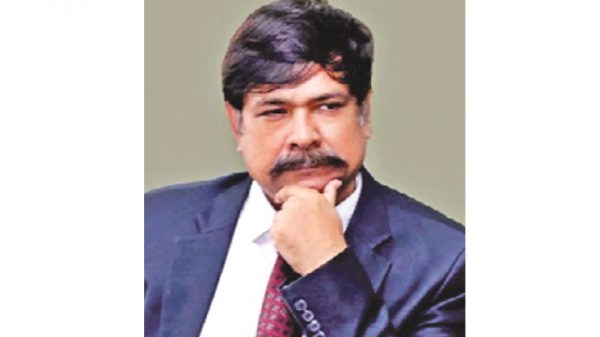7th March speech should be on the curriculum

Dr. Rashid Askari:
Bangabandhu Sheikh Mujib was possessed of exceptional powers of oratory by which the crowd would be held spellbound. Though his speeches were of passionate eloquence, they were not rhetoric. He was a competent and prudent politician and a leader of vision. On 7 March 1971 at the Ramna Race Course in Dhaka, Bangabandhu delivered a historic speech at a gathering of over a million people.
The 19-minute speech, comprised of 1107 words, was a beautiful lyric poem. Bangabandhu relates facts and figures of how the people of Bengal were deceived, deprived and suppressed. He urged the Pakistani rulers to comply with the rule of law, warned them about their undemocratic attitudes towards and barbarous treatment of Bengalis and finally gave his people a clarion call for resistance to Pakistani oppression. The speech, in many ways, was a decolonisation manifesto which had telltale signs of anti-colonial elements. It was a clear signal of independence of his country and its import is self-evident. All that the Bengali people lost during the 23 years’ bondage of Pakistani rule and all that they finally longed for, found expression in the strongly and carefully crafted speech. Words came out of his mouth as powerfully as gasses gush out of the volcano. The speech is, figuratively speaking, the finest oral poem of the Bengali language spoken in the best words and arranged in the best order. It is our sweetest song that tells both of our saddest thoughts and happiest dreams.
The speech is a work of outstanding political merit. With its words and phrases, rhythms and rhymes, pauses and intonation, emotions and passions, it speaks for itself and contains an undertone of resistance to the Pakistani rulers. Its gripping text captures the imagination of the people and becomes the herald of the last nail in the coffin of the Pakistani brutal regime. The fiery anti-Pakistan slogan “The struggle this time is the struggle for our emancipation; the struggle this time is the struggle for our independence,” has become the global slogan for a people’s financial deliverance and political independence and bears the stamp of post-colonial nationalism. Bangabandhu for his fine oratory and brilliant public speech was termed as a ‘Poet of Politics’ by the international Newsweek magazine, and deservedly so. The magazine made him the subject of a cover story which was published in its 5 April 1971 issue.
In his 7 March speech, Mujib announced a civil disobedience movement in the East Pakistan. He was a follower of Mahatma Gandhi and accepted his philosophy of civil disobedience. Civil disobedience, as popularised by the 19th century American philosopher Henry David Thoreau, is an argument for disobedience to the unjust affairs of the state and an avowed and active refusal to obey them in a nonviolent way. This way of peaceful protest inspired Gandhi in his struggle for Indian independence against the British Raj and Martin Luther King Jr’s peace movement for civil rights in America. Gandhi first used the term hartal derived from his mother tongue Gujarati haḍtāl to refer to his anti-British general strikes. His hartal was a mass protest for political reasons that involved a voluntary shutdown of workplaces, offices, shops, and courts of law against the British colonial rule. The term had wide currency during the entire gamut of the anti-colonial movement in the sub-continent and Mujib, as a follower of Gandhi was influenced by it and used it as a political weapon against the Pakistani rulers. Mujib’s civil disobedience movement in the East Pakistan was an all-out non-cooperation, an overflow of powerful collective emotions, and a mixture of idealism, courage and patriotic fervour. It concerned Yahya so much that he called Mujib ‘a traitor’ and accused him of breaking the Pakistan’s ‘solidarity and integrity’. Though Mujib’s civil disobedience movement turned into the war of independence, it was obviously in defence of the country against unprovoked military aggression.
The contemporary English historian Jacob F. Field has, in his 2013 book We Shall Fight on the Beaches: The Speeches That Inspired History incorporated the speech as one of the ‘most rousing and inspirational wartime speeches’ made in the last 2,500 years that range from Cicero to Churchill, Lincoln to Mao. Besides, UNESCO also included it in the Memory of World Register as a documentary heritage. However, as far as the text and context of the speech and its impact on the people are concerned, it was a clear manifestation of an enormous political will and powerful public opinion. Peter Furtado, editor of History Today magazine, called it “a de facto declaration of Bangladesh’s independence” in his 2011 book History’s Daybook: A History of the World in 366 Quotations. As a matter of fact, it is more than that. On the one hand, it was to prepare a people exploited, humiliated and deprived for a long time and for struggle for emancipation, struggle for independence and on the other hand, it was an outstanding event to unofficially declare independence by avoiding the allegations of UDI (Unilateral Declaration of Independence). After the rally the Pakistani intelligence sent a report to West Pakistan: “Clever Mujib tactfully declared independence”.
Sheikh Hasina’s government is celebrating the birth centenary of the Bangabandhu Sheikh Mujibur Rahman with great pomp and solemnity. There was a flurry of activity to mark the Mujib Year. But the point is to make sure that those activities are not reduced to ostentation or a mere formality. Whatever we do to observe the occasion should capture the hearts and minds of the younger generation and continue to do so. The 7 March speech, by popular demand, should be included in the school, college and university textbooks in order that the future generations can be brought up to be respectful of the Father of the Nation and can grow a sense of the nation’s history.
Dr. Rashid Askari is a writer, fictionist, columnist, translator, media personality and the former vice chancellor of Islamic University, Kushtia Bangladesh. Email: rashidaskari65@gmail.com




























Leave a Reply